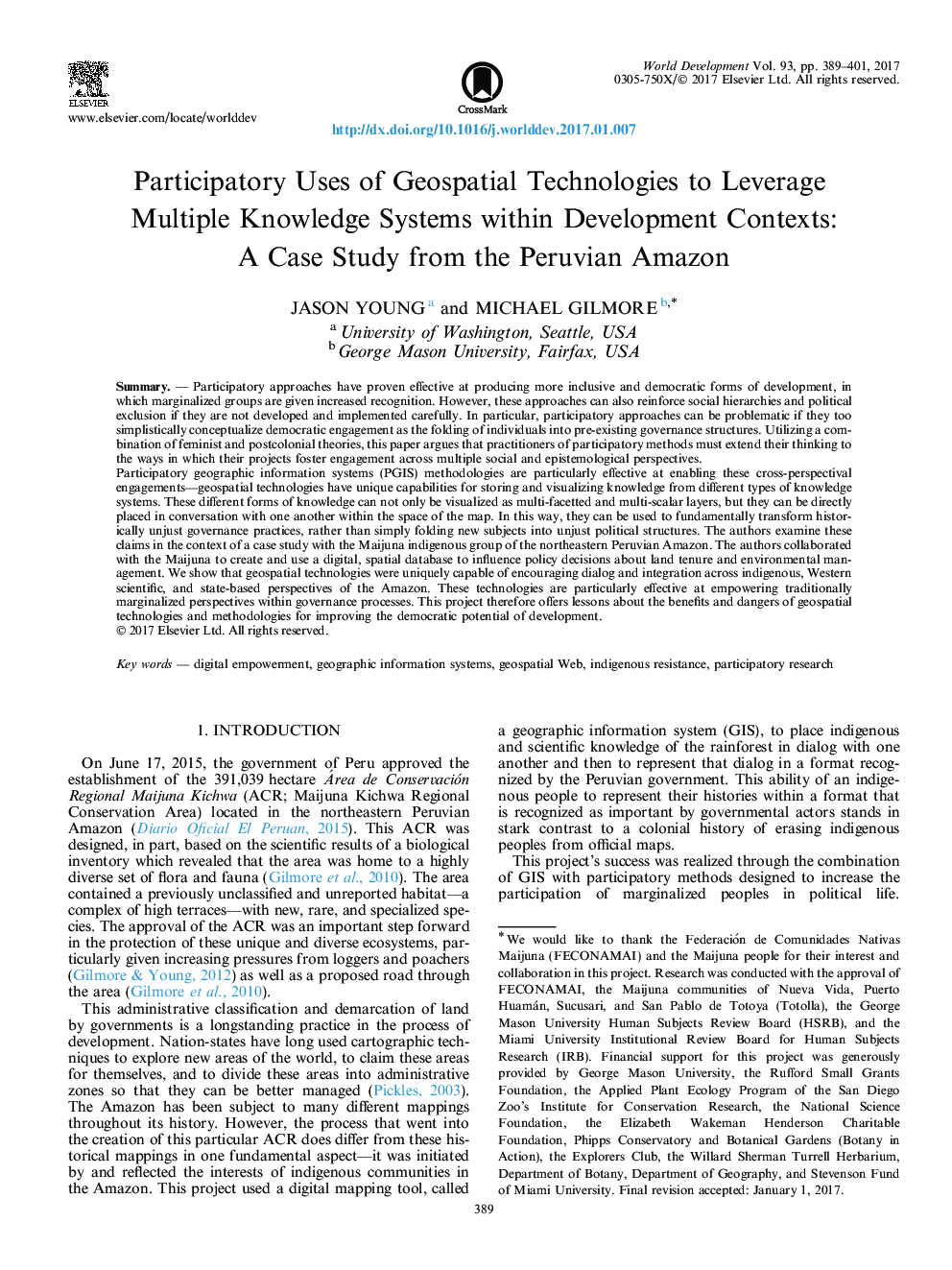| Article ID | Journal | Published Year | Pages | File Type |
|---|---|---|---|---|
| 5105314 | World Development | 2017 | 13 Pages |
Abstract
Participatory geographic information systems (PGIS) methodologies are particularly effective at enabling these cross-perspectival engagements-geospatial technologies have unique capabilities for storing and visualizing knowledge from different types of knowledge systems. These different forms of knowledge can not only be visualized as multi-facetted and multi-scalar layers, but they can be directly placed in conversation with one another within the space of the map. In this way, they can be used to fundamentally transform historically unjust governance practices, rather than simply folding new subjects into unjust political structures. The authors examine these claims in the context of a case study with the Maijuna indigenous group of the northeastern Peruvian Amazon. The authors collaborated with the Maijuna to create and use a digital, spatial database to influence policy decisions about land tenure and environmental management. We show that geospatial technologies were uniquely capable of encouraging dialog and integration across indigenous, Western scientific, and state-based perspectives of the Amazon. These technologies are particularly effective at empowering traditionally marginalized perspectives within governance processes. This project therefore offers lessons about the benefits and dangers of geospatial technologies and methodologies for improving the democratic potential of development.
Related Topics
Social Sciences and Humanities
Economics, Econometrics and Finance
Economics and Econometrics
Authors
Jason Young, Michael Gilmore,
